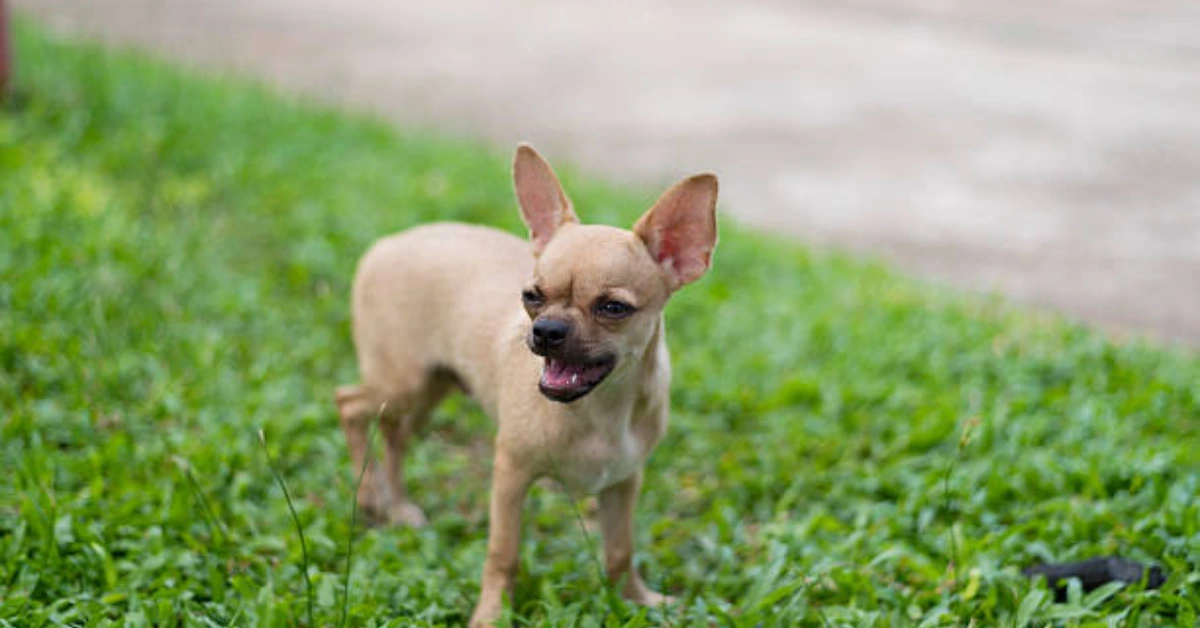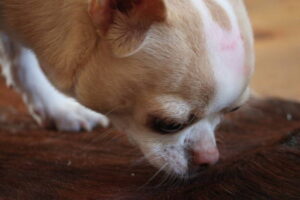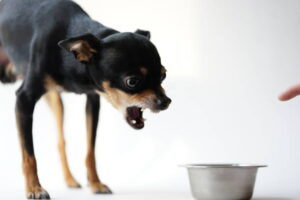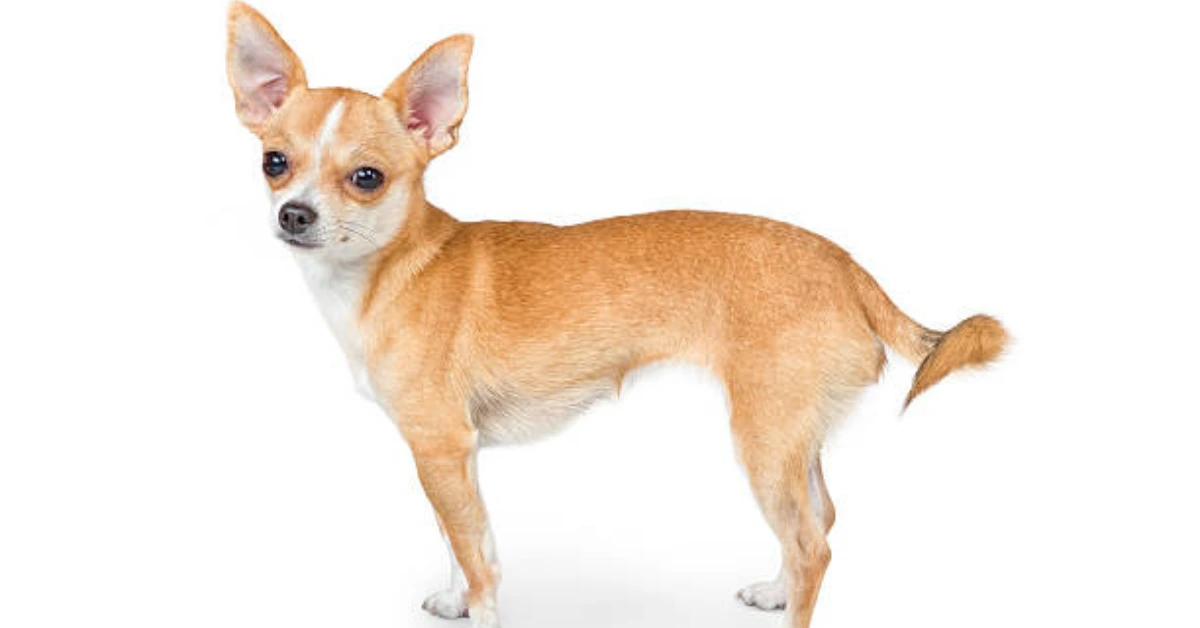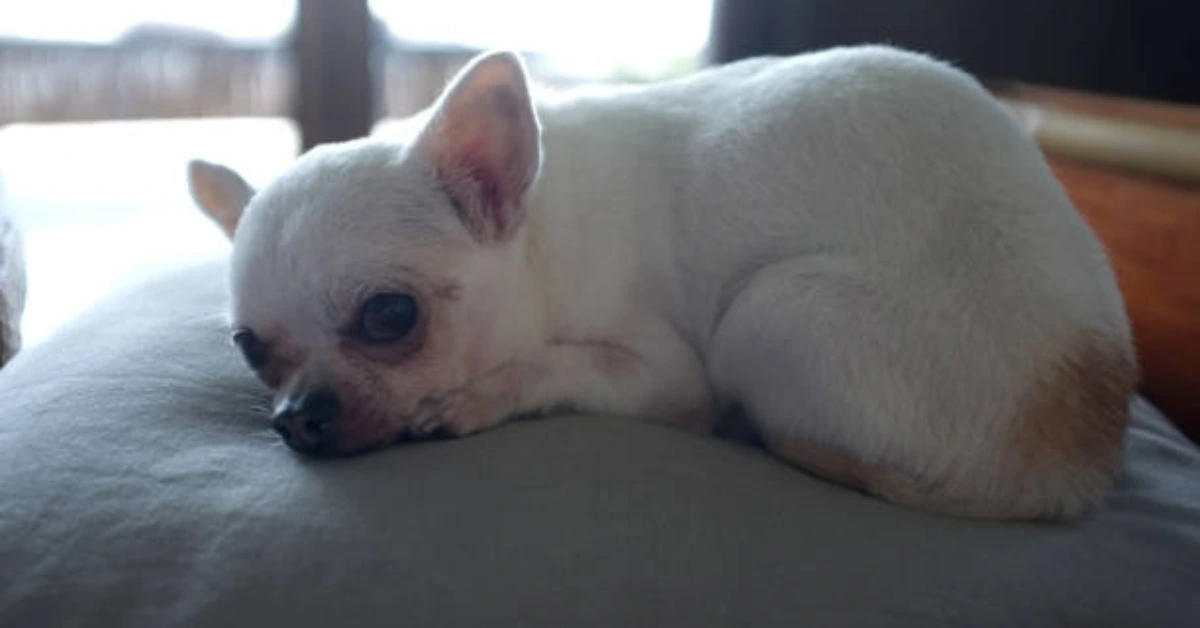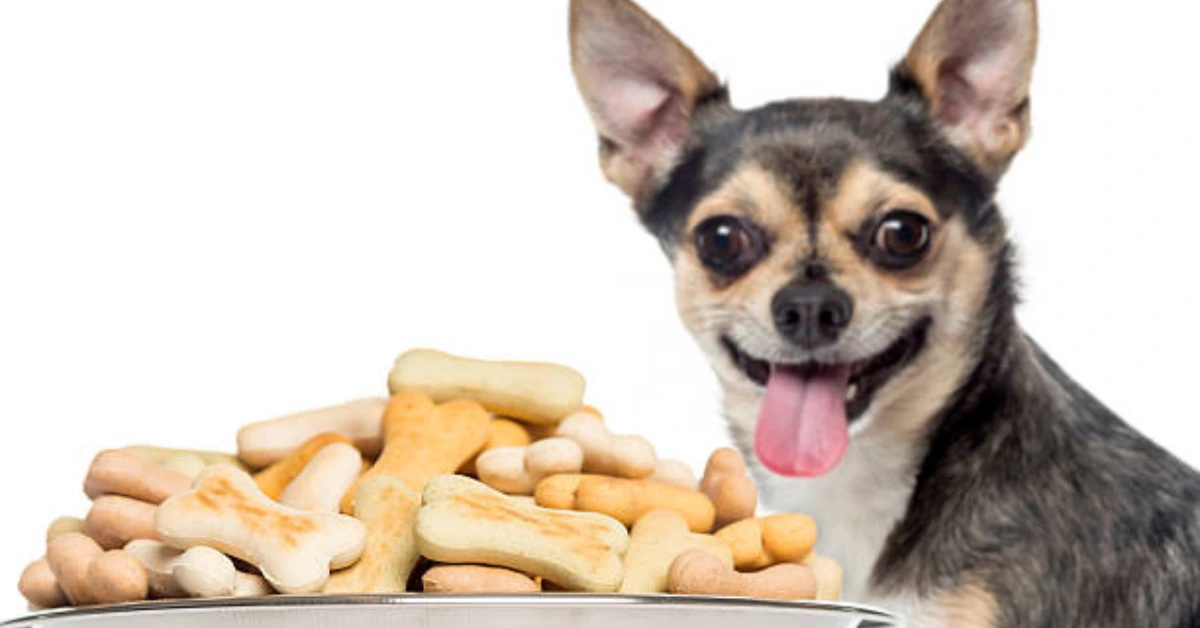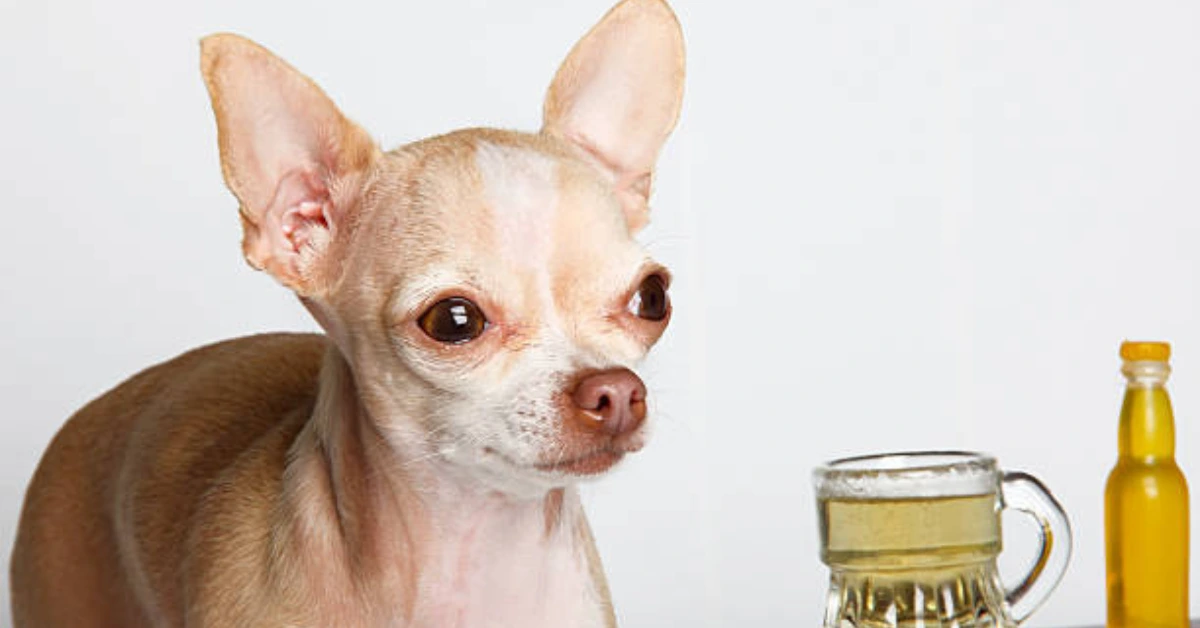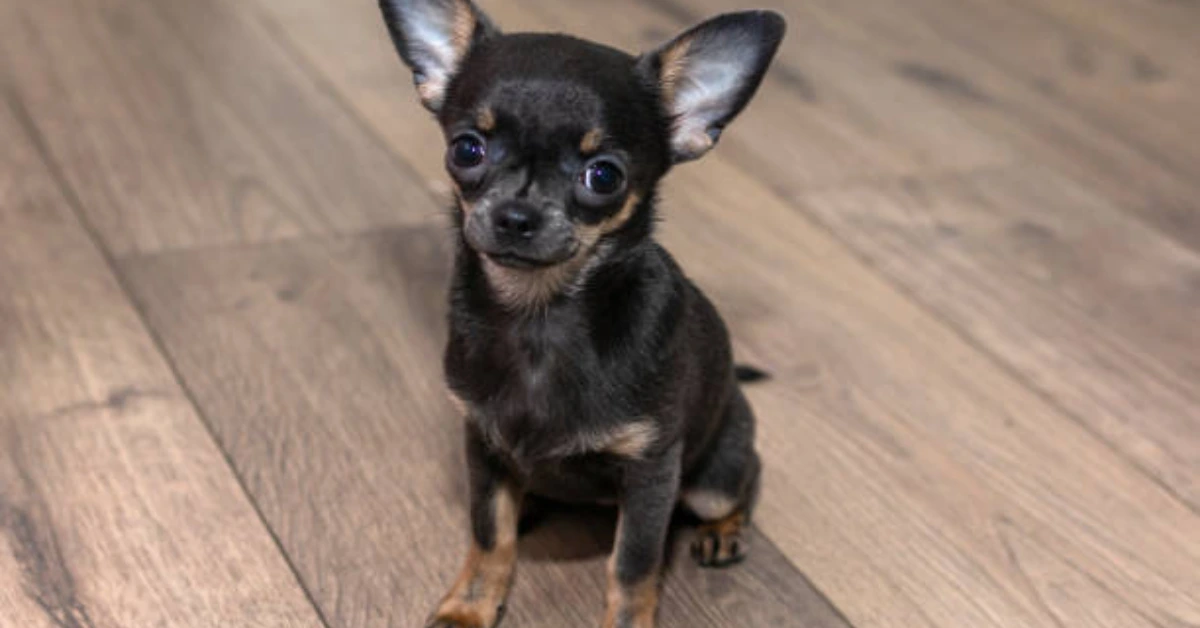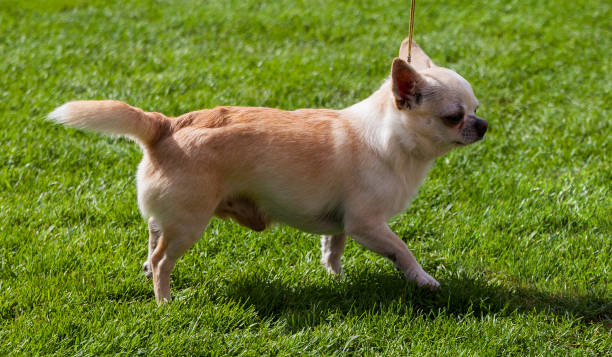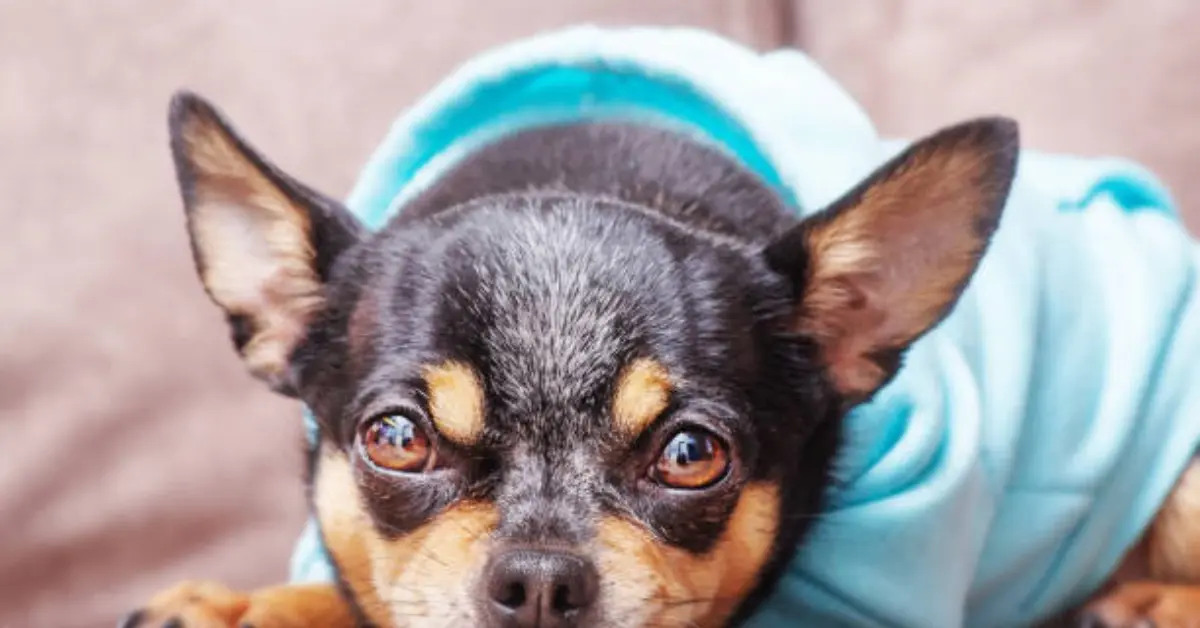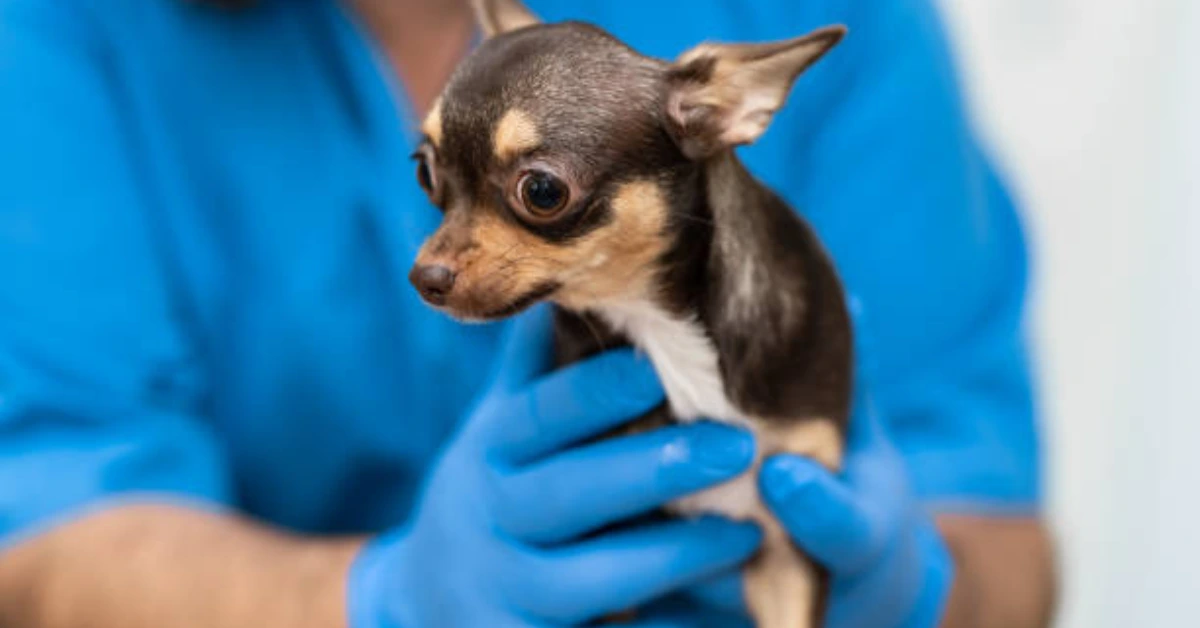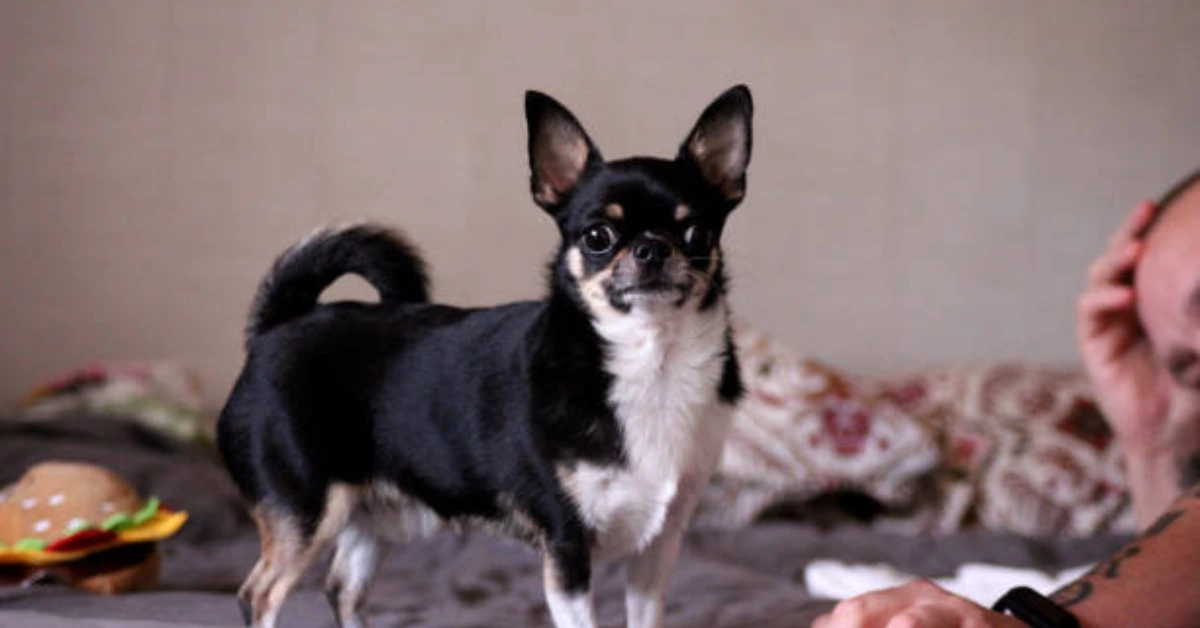A Chihuahua throwing up might be frightening since this small toy dog is prone to dehydration from fluid loss. There are two types of Chihuahua Vomiting: acute and chronic.
In any case, you’ll want to find out why your dog or puppy is sick and if you can take care of it at home or whether you need to take them to the doctor.
Continuous Vomiting
One of the problems that might arise from severe vomiting in a Chihuahua is that the body quickly loses essential fluids, which can lead to dehydration distress relatively quickly.
Advertisement
A Chihuahua may rapidly deteriorate if it is vomiting up but not eating because of stomach distress, or if it is trying to eat but the food just comes out again.
Owners want to know if vomiting can result from a food allergy or intolerance. Food allergies are discussed in so many places that it is easy to assume that they are very common.
However, food allergies account for only 10% of all allergy cases. Additionally, the most typical reactions in dogs that are allergic to a particular chemical include swelling of the face, itching all over the body, but especially noticeable on the anal area, infections in the ears and skin, and/or abnormalities in bowel movements.
A dietary intolerance would be more likely. This could be the reason why a Chihuahua started throwing up a lot shortly after switching to a new diet. Furthermore, every one to three years, dogs might change; as they become older, a dog that they once tolerated might start throwing up.
Treatment for food intolerance
It is usually advisable to rule out other medical conditions before presuming that an intolerance is the cause of the vomiting.
If this is the case, the dog needs to be fed bland food so that its stomach can relax. One can administer Pedialyte combined with water. Meals like the rice, banana, oatmeal, and sweet potato listed before should be simple and readily digested.
Give very little; if a Chihuahua has a severely upset stomach, hand feed them one tablespoon every half hour.
The illness could end in death. There are some very bad reasons a Chihuahua might be throwing up all the time. Some reasons are:
- Stomach sores
- A cancer
- Weak pancreas
- Kidney sickness
- Liver disease and diabetes
- an ear infection
- Bladder cancer or a tear
- Distemper in dogs
- Parvovirus Can Cause Addison’s Disease
Things to do: If your pet keeps throwing up, you should take them to the vet. Your vet has to find the cause through tests before he can give the right medicine.
You can use different kinds of treatments and medicines based on the reason. Some health problems are very serious, but you can cure many of them with professional help.
Acute Vomiting
Acute vomiting is a type of vomiting that passes fast and leaves the dog acting normally thereafter. Sometimes, the cause, and other times,
The dog may have just eaten too quickly once, or even ingested grass or an insect, which set off a reaction in his body.
How to proceed
1. Initially, observe your dog or puppy to see if any further symptoms show up. Keep an eye out for dry heaving, which can happen if there is no food in the stomach but the spasms are still producing the retching. For a dog, this can be quite taxing, sapping his vitality.
Additionally, you should check to see if he seems distressed, if he is having difficulty breathing, if he is weak, if he refuses food or water, or if there is any bloating.
You should take your dog to the vet as soon as possible if any of those symptoms seem concerning.
2. It’s advisable to prepare an easy-to-digest supper for your Chihuahua the following time if they seem fine after the incident. Rice, oatmeal, bananas, and/or sweet potatoes should work.
You can blend the ingredients, as in basic oatmeal with little bits of banana or rice with chunks of potato.
3. Instruct your Chihuahua to drink, and if they refuse, you can try providing them with an ice cube, either plain or flavored.
A dog that has vomited up can be immediately rehydrated by giving them unflavored Pedialyte. This can also address any weakness that may have resulted from the dog throwing up food or fluids.
Vomiting Right After Exercise
It’s typically because there was too little time between eating and exercising that your Chihuahua spits up after or shortly after a vigorous walk or exercise session. Due to their high level of activity, Chihuahuas may start racing around before their food has had a chance to settle.
After the puppy or dog has eaten, it is preferable to give them at least twenty minutes to pass before taking them for a walk or having them play in the yard.
Throwing up food right after eating
A Chihuahua can throw up in the kitchen immediately following a meal. In technical terms, we call this regurgitation if the food is being thrown up before it has had a chance to digest. The food chunks that are heaved up could resemble the contents of the bowl quite a bit.
The Chihuahua’s overeating is the most frequent cause of this. The solution to this is as simple as getting a slow-feeding bowl. These unique bowls use a safe, center projection to disperse the food. Make careful to stay away from plastic products as well; even those with labels indicating BPA, PVC, or phthalate can trigger severe allergic reactions.
Violent Vomiting
It is reason for concern when a Chihuahua exhibits an acute episode of sudden, projectile vomiting. This typically indicates that the dog consumed something harmful.
Canines are incredibly inquisitive animals and have access to places you never would have imagined. In addition to non-food objects, a puppy may swallow poisonous liquids like cleaning solutions, decaying food from the garbage, or toxic foods that are harmless for people but can be lethal to dogs, particularly toy breeds.
Other signs:
Other symptoms may or may not accompany a dog’s vomiting due to poisoning. Occasionally, the dog will exhibit signs of panic, such as spinning in circles, pacing erratically, running around wildly, dry heaving, shaking, shivering, retreating, or displaying other signs of discomfort.
What to do: If your Chihuahua is throwing up a lot, you have to take him or her to the nearest vet or animal hospital right away. It’s always better to be safe than sorry.
If at all possible, bring the container with you if you know what your dog has consumed. You won’t want to take any chances since sometimes a minute does make all the difference.
Vomiting After Eating Grass
The reasons why dogs eat grass are the subject of differing theories. Some claim that dogs would deliberately consume grasses to make them throw up. Some claim that vomiting is only a negative reaction to a dog eating grass, which the dog needs to absorb nutrition.
Preventing your puppy or dog from ever eating grass is the best course of action. It is never advisable to leave this breed outside unattended. In addition to insects and chemicals used in lawn care, a Chi might swallow tiny pebbles that could obstruct anything or consume harmful weeds or flowers.
Leptospirosis is a disease for which pets may not be vaccinated, and worms and other illnesses can be spread by feces on grass or by the urine of wild animals.
Due to their inability to control body temperature, their potential for escape, and their susceptibility to predatory birds like hawks and dog snatchers, you should always keep your chihuahuas on leashes and under close supervision when they are outside.
That being said, reevaluating the dog’s diet is necessary. Switching to a better-quality brand if the Chihuahua continues to tend to eat grass, whether or not vomiting occurs. Remember the significance of providing your dog with a comprehensive daily vitamin and mineral supplement as well.
Vomiting And Diarrhea
Owners are understandably concerned when their Chihuahua experiences diarrhea and vomiting at the same time. A Chihuahua’s low body weight and restricted bodily fluid intake can cause deadly dehydration in a matter of hours.
Many of the same causes that affect vomiting alone also apply to this. This covers a variety of conditions such as food intolerance, eating rotten food, poisoning, and numerous illnesses including parvo and distemper.
What to do:
Give the dog only liquid food, such as water mixed with Pedialyte, and avoid giving him any food at all. It’s best to have someone be with the Chihuahua at all times in case his illness gets worse or if new symptoms arise.
A tiny bit of bland food might be offered after a day to see how he responds.
See a veterinarian as soon as possible if the puppy or dog’s symptoms increase, including bloody diarrhea, or if the vomiting and diarrhea don’t go away after a day. If the appointment is later in the day, keep him from eating and encourage him to sip on Pedialyte-flavored water.
You may be requested to bring in a stool sample, so be ready to gather some by turning a clean, plastic sandwich bag inside out and then back inside out once the feces has been placed inside.
When Should You Call a Vet About a Vomiting Dog?
Even though a Chihuahua may throw up and then seem great the next minute, owners should always be on the lookout for additional symptoms that could warrant a same-day visit with the veterinarian.
The following indicate that an assessment is urgently required:
- Projectile vomiting is the term for violent vomit that is violently ejected and occasionally also emerges via the nose.
- If the problem persists for longer than a day, there is a vulnerability.
- When the Chihuahua declines food,
- If the canine or puppy refuses to sip water
- If there are further symptoms, such as bloating in the stomach, swelling anywhere on the body, nasal discharge, diarrhea, or lightheadedness
YOU MAY ALSO LIKE:
My Chihuahua Is Eating Their Poop—Why? How Can I Get Rid Of That Bad Habit?
Advertisement

